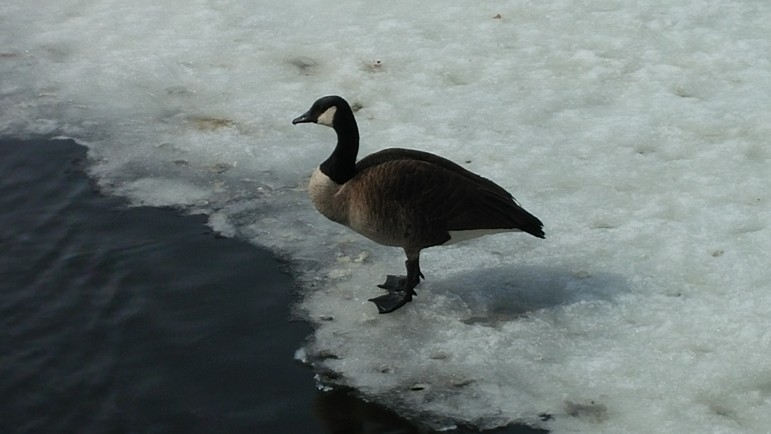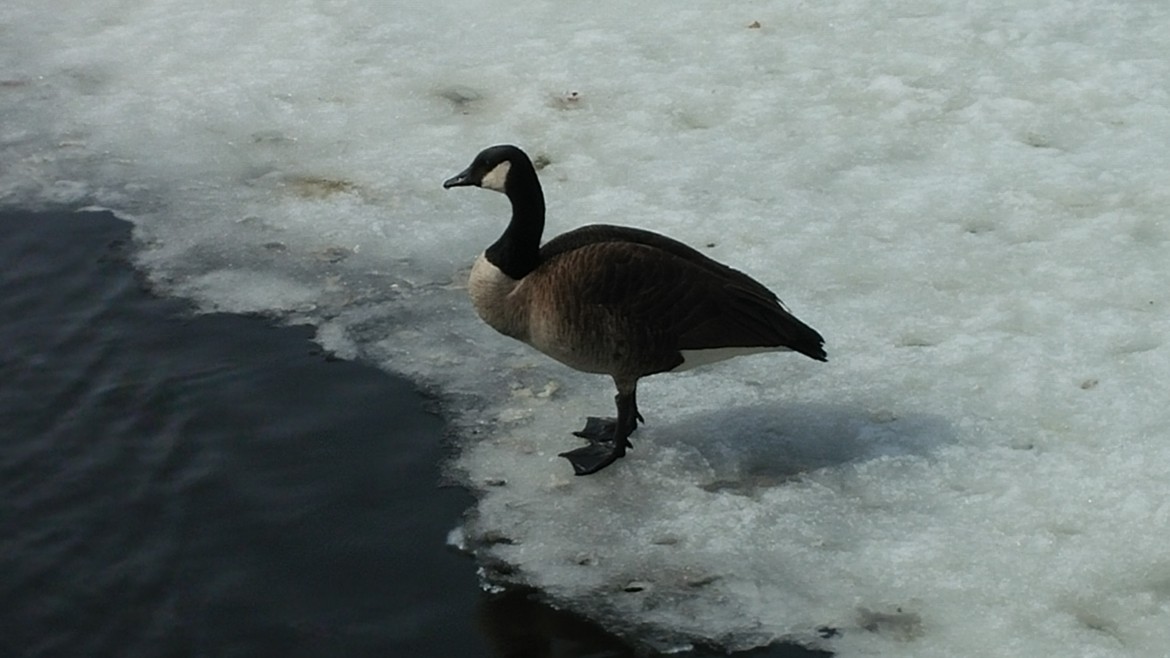
Charlie Breitrose
Geese have suffered this winter because of the heavy snow covering on the grass.
The dense covering of snow on lawns, plants and other areas has made it difficult for some wildlife to get a meal, and some are suffering.
Watertown Animal Control Officer Karen O’Reilly said she had seen unusual behavior by wildlife around town because the snow had covered a valuable food source.
“We are seeing many animals, such as skunks, who are wandering around during the day desperately looking for food,” O’Reilly said. “They are traveling up and down plowed/ shoveled paths such as the sidewalks and streets as they are the easiest paths to take.”
Geese have also struggled this winter. They depend heavily on grass for food, O’Reilly said.
“We are seeing a lot of thin and desperate geese. Last week a resident on Stoneleigh Circle called because a goose had been sitting in her yard since 8 p.m. the night before,” O’Reilly said. “The goose did not even move when her dog went in the yard. I responded yet did not see any injuries on the bird but he was definitely weak and lethargic.”
The goose was taken to the Tufts Wildlife Clinic, and she saw other geese being dropped off by the Animal Rescue League and said the Waltham Animal Control Officer had been there another day to drop off a a goose.
The Clinic has seen a dramatic increase in the number of wildlife cases this winter, according to an article in the Worcester Telegram (see the article here). From the New Year to the beginning of March 2015, 261 animals were admitted to the clinic – 81 more than last year. The number of waterfowl seen at the clinic has more than doubled.
